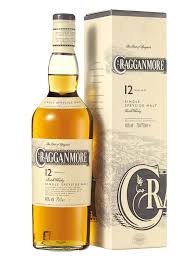Todd Pruitt, Witchfinder General
As you can see, advance publicity is already being leaked for the new epic Alliance-sponsored biopic,Witchfinder General: The Todd Pruitt Story. Directed by the Puppetmaster, it looks fantastic, with its scenes of violent book burnings ('Please, I'd rather you didn't use church money to buy Jesus Calling'), extreme Reformed fanaticism ('Bring that baby to the font now, wretched wench!'), and his consistent failure to reimagine the future and realize that many of his methodologies, paradigms and strategies need to change to get to the next level of ministry success ('Today I am going to be preaching on a passage in - no, not my own book but.... the Bible!').
Pruitt Story. Directed by the Puppetmaster, it looks fantastic, with its scenes of violent book burnings ('Please, I'd rather you didn't use church money to buy Jesus Calling'), extreme Reformed fanaticism ('Bring that baby to the font now, wretched wench!'), and his consistent failure to reimagine the future and realize that many of his methodologies, paradigms and strategies need to change to get to the next level of ministry success ('Today I am going to be preaching on a passage in - no, not my own book but.... the Bible!').
In fact, the movie is a tale of two paradigms. One is where the church is not an act of man but a creation of God. Thus, its tools are defined by God and consist of the ordinary means of grace -- the Word read and especially preached, the sacraments, and prayer. These are the ways God has provided for growth and maturity. The other is one where the church is a corporation, where management theory, entrepreneurial gibberish, and an emphasis upon technique, built around a Pelagian anthropology, set the priorities.
A subplot, for the real film critic, is the cultural problem of niceness. As Todd pointed out yesterday, to criticise a book and to refuse to use church money (ahem -- God's money) to buy it and distribute it is not the same as banning it. If you want to read heterodoxy or heresy, use your own money, not the church's. Yet we live in a world where all criticism is increasingly seen as personal, as a judgment on somebody's worth and identity, not simply on an argument or an idea. As I commented earlier in the week, this is an obvious problem with the culture surrounding women's writing; but forms of it pervade all aspects of the evangelical world in general and pay no respect to gender.
 I did suggest to Todd that he challenge his critics as I did a few years ago. When I commented critically in a magazine article on three recent books on biblical inspiration, one indignant correspondent demanded to know why I was telling people not to read the books. Of course, I had not done so, having this naive belief that most people are adults and capable of assessing the worth of an argument for themselves. The claim was simply slanderous, but rather than whine angrily about it as is the more widespread response, I persuaded the editor of the magazine to allow me to respond with a challenge: if anyone could find anywhere in anything I had ever written or said that I had told people not to read any book whatsoever, I would give them a free bottle of quality Scotch. Some years later I still have not had to provide the Scotch. Nor, as it happens, have I received an apology. But as Todd knows only too well, when you are sure, absolutely sure, that you are on the side of the nice angels against the nasty Reformed bully boys, apologies are completely unnecessary. After all, everyone knows that all reputations are equal -- but some are considerably more equal than others.
I did suggest to Todd that he challenge his critics as I did a few years ago. When I commented critically in a magazine article on three recent books on biblical inspiration, one indignant correspondent demanded to know why I was telling people not to read the books. Of course, I had not done so, having this naive belief that most people are adults and capable of assessing the worth of an argument for themselves. The claim was simply slanderous, but rather than whine angrily about it as is the more widespread response, I persuaded the editor of the magazine to allow me to respond with a challenge: if anyone could find anywhere in anything I had ever written or said that I had told people not to read any book whatsoever, I would give them a free bottle of quality Scotch. Some years later I still have not had to provide the Scotch. Nor, as it happens, have I received an apology. But as Todd knows only too well, when you are sure, absolutely sure, that you are on the side of the nice angels against the nasty Reformed bully boys, apologies are completely unnecessary. After all, everyone knows that all reputations are equal -- but some are considerably more equal than others.
















